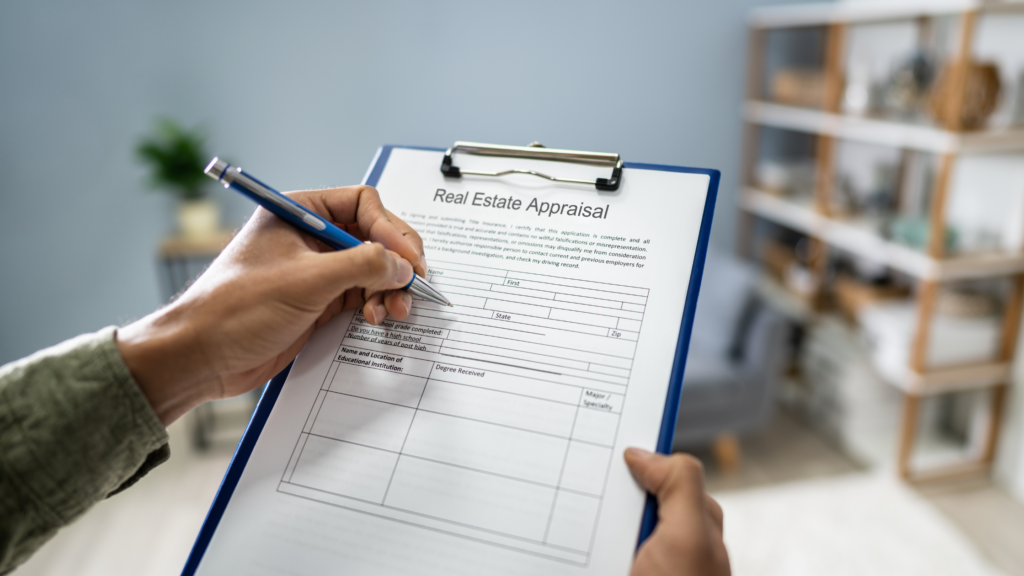Home Appraisals: Everything You Need to Know
Buying, selling, or refinancing a home and curious about home appraisals and how they come into play?
Look no further!
In this article, we’ll be breaking down everything you need to know about home appraisals from what they are and why they’re important to how the home’s value is determined and more!
With so much to cover, let’s dive in!
What is a Home Appraisal?
Starting with the basics.
A home appraisal is an unbiased, professional opinion of a home’s value, determined by a licensed appraiser, per the law.
Home appraisals are a key component of real estate transactions, most often during the purchase and sale of a home but also take place when a homeowner is trying to refinance their home.
During purchase and sale transactions, home appraisals are used to determine if the home’s contract price is fitting given the home’s condition, location, and any special features or upgrades. For both a purchase and sale transaction as well as a refinance situation, lenders want to ensure they aren’t giving more money to the borrower than the house is worth.
Home Appraisals Vs. Home Inspections
While home appraisals and home inspections are similar, as they both help to determine the status of a home, they are two different entities entirely.
Home appraisals are a visual inspection of a home, taking into account issues like visible cracks or a caved in roof. Appraisers do not search for specific problems; rather they take note of any visual defects and assign the home a value given these defects (and other factors that we’ll get into later).
Home inspections on the other hand are much more in depth. During a home inspection, an inspector has a detailed list of items to check, taking note of any issues that require repair for health and safety reasons.
Both are important, but it’s important to know the difference when dealing with such a large transfer of funds!
Why Are Home Appraisals Important?
Honestly, home appraisals are most important for lenders; they want to ensure borrowers aren’t overborrowing for a given property.
If for some reason a homeowner defaults on their mortgage, the lender will sell the home to cover lost funds. In this way, the home acts as collateral. Home appraisals help lenders ensure they aren’t loaning out more money than they are able to recover.
Additionally, home appraisals help buyers to know that the home they are purchasing is worth what is being asked.
How Values Are Determined?
As mentioned, home appraisals take into account the home’s basic condition, the location of the home, and any upgrades to the property.
Let’s break each of those areas down a bit more for clarity:
- Home condition: basic home condition considerations include items like how many bedrooms a home has and if those bedrooms have windows and closets. Plus, some health and safety items such as a properly functioning HVAC system and the presence of any lead paint. Ultimately, they are checking to see if the house is reasonably livable.
- Upgrades: upgrades to the property need to be permanent (i.e. not able to be removed when you leave the home). Appraisers take into account not just the primary living space but also outside features like the garage and any backyard features such as a pool or new decking.
- Location: home appraisers take into account not just your home but what other similar homes in the area have recently sold for as well as how property values are trending overall.
The Appraisal Process, Cost, & Timeline
Process
During a purchase and sale transaction, appraisals are generally one of the first steps of the closing process.
If the appraisal comes in at or above the proposed contract price, the transaction goes through as planned. However, if it comes in below, the transaction may be derailed.
At this point in the process though, most buyers and sellers do not want the transaction to fail, so often negotiations take place to see if all parties can come to an agreement on price. In this way, buyers usually have the advantage, but if a seller feels the appraisal is inaccurate, they may try to appeal the decision, seek out a second opinion, or drop the sale altogether.
Cost
Because home appraisals primarily protect the lenders interests, lenders are most often the ones to issue the home appraisal. However, the buyer is usually the one to pay the fee unless they negotiate for the seller to pay instead.
When it comes to cost, home appraisals usually run on average anywhere from $300-$600. They vary in price based on the size of the home and plot of land, the location of the home, and how much research the appraiser does before issuing the final report.
Timeline
Depending on the above-mentioned factors, home appraisals can take anywhere from 30 minutes to several hours. From start to finish, you can expect home appraisals to take anywhere from a few days to a few weeks to issue the final report.
Bottom Line?
Home appraisals are an integral part of the home buying and selling process as well as refinancing.
They’re not only important to lenders but to you as a homeowner as well. Ultimately, home appraisals ensure a proper value is assigned to a given home, taking into consideration a number of factors like basic home condition, location, and any other special features that may add value.
If you have more questions about home appraisals, please reach out to us! We offer free consultations with absolutely no strings attached!




